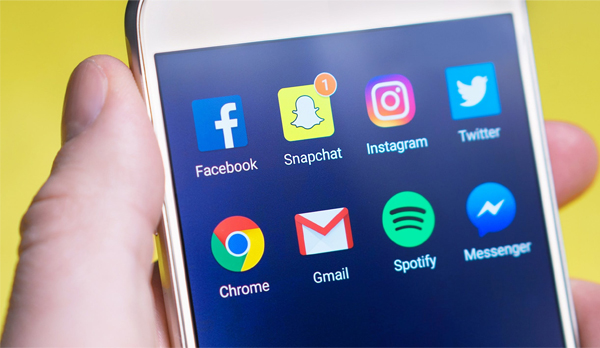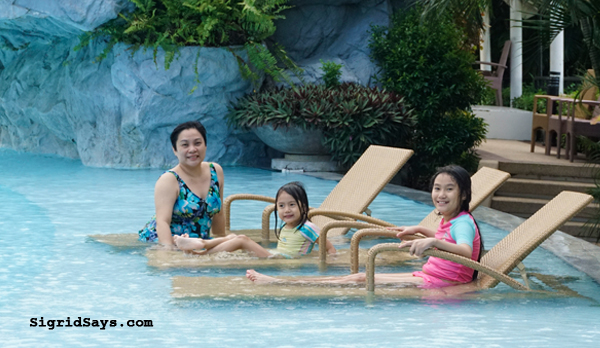A Social Media Parents’ Guide
Parenting in the digital age means that parents are faced with a bigger challenge–social media. Here is a simple social media parents’ guide that all parents can benefit from.
Note: Read my husband’s post about Parenting in the Digital Age. These are the simple things that we do at home to keep a digitally safe environment.

Simple Social Media Parents’ Guide for Minors
Use of Digital Devices
Magazines and online parenting portals have always emphasized the harm for kids and teens when using digital devices. Even schools, like Bright Kids Preschool in Bacolod, warn about excessive use of tablets, smartphones, game consoles, and TV. It is being discussed during PTC meetings and we are constantly reminded over and over again. If possible, parents are encouraged to totally withhold gadget use during exam week.
That is because, children’s brains are not that fully developed yet to cope with the visual stimulation from gadgets.
But despite all the warnings from experts, there are still parents who turn a deaf ear. We have a close personal experience about this. A little boy we know reportedly has mild autism, hence, his sometimes unruly behavior and unwarranted tantrums.
But when the boy was younger, like before he turned 2, he was not like that. But then his mom got busy and he was always left with the sitter.
What we have observed is that, he has so much screen time–from the time he wakes up until he retires at night. He watches videos on the phone while eating breakfast, watches TV at lunch time, tablet in the afternoon, more TV during dinner, and a movie before going to bed. For a really young child, that’s too much.
Insert Social Media
Aside from the mere use of gadgets, we now have another threat–social media. While social media is a good tool to connect with friends and family, predators also use it with bad intentions in mind. That is why we have age restrictions for social media use. It is with the notion that if we are older, we have more wisdom and prudence in our social media interactions.
Age Restrictions for Social Media Use
When we sign up for a social media account, we click an agreement button. One of the terms of the agreement is that we declare that we are of age, as required by the site. Below, is a guide on the age restrictions of different social media sites.
- 13 years old – Twitter, Facebook, Instagram, Pinterest, Google +, Tumblr, Reddit, Snapchat, Secret
- 14 years old – LinkedIn
- 16 years old – WhatsApp
- 17 years old – Vine, Tinder
- 18 years old – Path
- 18 years old – Keek, Foursquare, WeChat, Kik, Flickr, YouTube (may be 13 but with parents’ permission and supervision)
But despite this, more and more young children use social media. Parents allow them to and sometimes, without supervision.
And even schools allow it, too. I have liked too many photos on Facebook of elementary school children because it’s part or the basis of the judging of a pageant, a school play, an experiment, and what-not. It’s annoying because teachers are encouraging the use of social media among young kids.
Ask Yourself
So parents, ask yourselves a couple of questions. In this tech-savvy age, how are we doing in terms of parenting our children in such a scenario? The questions below will help you think and will prove to be a good social media parents’ guide.
1. How much is too much social media use?
A study by UNICEF reports that “some time on social media is actually good”. It also says that “digital technology seems to be beneficial for children’s social relationships.”
Needless to say, we can do a lot of things on social media. We can connect with friends, give to charities, help out in volunteer work, and be informed of what’s happening in our society.
But too much screen time, however, can become damaging to the kids’ mental health. Here is some data for you:
- The average teen today spends about 9 hours a day in front of a screen.
- Screen time has become like a full-time job.
- Two hours on social media has been shown to contribute to anxiety and unhappiness among teens.
- It is best to limit social media use for 60 to 90 minutes per day for teens. I think kids could do without social media.
- Other hours should be filled with face to face time with friends, indulging in sports, housework, studies, and time with family.
A well-balanced day for a child or teen will produce happier and more productive individuals. Furthermore, it results in more satisfied young adults. If your young child or teen is already hooked to gadget or social media use, this will be a major shift.

If you choose to regulate their use, expect some resistance. A good conversation with your teen about making a slow and steady change is a must. As for young children, read up on what you can do. Maybe some rewards will help.
2. Parents monitoring social media use. Is that ok?
There are people who offer differing opinions about whether parents monitoring social media use of their kids is ok.
Some sectors believe that children deserve privacy. They should not worry about mom or dad checking on them. In our family, we beg to differ. While I also value my privacy, I am a grown up. Children, however, need more guidance, especially in understanding how the world works.
We have seen so many cases of kids getting victimized and brutally scarred for life. That is because they are not yet fully aware of the dangers of predators and cyber-bullies.

Additionally, teens receive indecent propositions from adults with bad intentions. As a parent, it is my responsibility to care for the physical, mental, emotional, and psychological well-being of my child. It is my job to nurture them and guide them to have the right values. I wouldn’t leave them with strangers, why would I leave them with the company of the internet?
What are you thoughts about this? Where do you stand as a parent?
3. What apps can I use in monitoring my kids’ social media use?
Here are some digital tools and apps that you can use in monitoring your kids’ social media use.
Norton. This allows you to set a phone time limit. You can also filter web content that comes in. However, I suggest that you still do a random check. Sometimes, seemingly harmless material doesn’t get filtered off because they are cloaked in cute themes and keywords. But these content are still not suitable for young people.
TeenSafe. You can track your child’s calls, texts, GPS, and social media activity.
MobSafetyRangerBrowser. This enables you to view your child’s website browsing and set time limits.
PhoneSheriff. This enables you to do all of the above things. However, it is only available for fewer devices.
DinnerTime. Limit phone Internet use during family meals. But I think it is best that children understand that family meals are a time of gathering and blessing. They should be made to understand the significance of this time. They should be physically as well as mentally and emotionally present during the meal. That way, they eat with a merry heart, not grudgingly, because their screen time is taken away.
Qustodio. This allows you to track and set a phone curfew. Phones will be shut down at a designated time.
Limiting Online Friends. Encourage your children to add up social friends that they really know personally. Or those that their parents know. They should also ask if they were added up by some people they don’t know personally. Do spot check your child’s friends’ list and messenger from time to time for questionable interactions.
Privacy Settings. One other idea might be for parents to encourage their children to use privacy settings. Inform them about public posts and how these can become viral in a bad way without their consent.
There are actually several other apps that allow parents monitoring kids’ social media use. As long as they are minors, I think parents need to know what they are doing and who they are chatting up online.
4. What are symptoms that a student needs to reduce screen time and social media?
Here are interesting facts. According to Common Sense Media, 50% of teens say that they are hooked to their cell phone. Meanwhile, CSM concludes that more study is needed to determine how deep digital addiction is.
But teens feel the symptoms and consequences of it. It is now a growing issue in middle class America. Two-thirds of parents, feel that their teens spend too much time on their mobile device. In this day and age, smartphones have now replaced teens hanging out at the mall or going to the movies.
Signs that a young person has spent too much time on social media platforms or on their mobile device:
- Withdrawal from face-to-face social interaction.
- Showing consistent stress and anxiety for normal routines.
- They are overwhelmed with a simple dinner in a restaurant with family and friends.
- Grades are slipping and assignments are done poorly or even left undone.
- Avoidance of real-life responsibilities, such as doing household chores or homework.
- Becoming ill at ease, ill-equipped, or even totally unresponsive to people interacting with them.
- Conflicts with their closest relationships because of apathy.
- Displaying phubbing behavior—snubbing people next to them by constantly looking down at their phone.
5. How do I handle arguments about their gadgets?
I am no expert but I know that millions of parents have had bad fights with their teens and children about gadgets. They disagree with their child on the use of mobile phones or of social media sites. The emotional debates can further divide parents and kids. Alienation then occurs.
One such way to handle disagreements about such topic is to have a “contract”. It is best to make it written so that you can have something tangible to go back to. It also teaches children to honor contracts and commitment.

This can be done before buying the gadget and handing it over to your child. So before he or she gets excited to receive that birthday gift or reward, they have to agree whatever you have stipulated in the contract.
For now, we are getting the kids used to idea of having a birthday adventure, rather than get excited over the newest gadget.
6. Should we be friends with our children on social media?
Some experts believe that this should probably depend on the personality and age of the child. Practically speaking, it would be good to stay connected because you can easily message your child. For me, it is easier to monitor what they have posted.
Here are some fun facts for you:
- 53% of children are friends with their parents. This tends to work when the child is between ages 12 to 14. By ages 15-21, being friends with a parent who is especially interactive might feel smothering or even embarrassing. As young adults, the online relationship becomes easier.
- Most parents like it when they are friends with their children on Facebook. But because of this, children tend to leave FB and find other social media channels. If you are friends on Facebook, maybe you can minimize your interaction on public posts. Being a teenager is hard enough. Don’t make it harder by interacting with your child with cheesy lines on Facebook posts. It could get them bullied.
- While children can befriend their parents on common social media sites, they can have an alter ego–an anonymous account on another platform.
Social Media Facts
Below is an infographic that contains facts about the four most common social media platforms.

We will never ever be perfect when it comes to parenting our children. But we can certainly improve, especially in handling the digital age. This Parents’ Guide to Social Media for Kids can be a great tool for you. I am not totally against technology. But I am for moderation.
Be informed.
The #makeITsafePH campaign
Globe Telecom, a purveyor of a healthy digital lifestyle, came out with the #makeITsafePH cybersecurity and cyberwellness campaign. This is to educate consumers about online threats and what they can do to avoid becoming a victim. The campaign also teaches the public proper online etiquette. They have teamed up with Bacolod bloggers to help spread the campaign in the Visayas.

Good to know about the age restrictions on each social media platform. I wasn’t sure of them.
Knowing how much I did online when I really shouldn’t have as a kid would make me worry if I did have kids. I think it’s good that there are age restrictions but it’s about being careful as it’s easy enough to change your DOB x